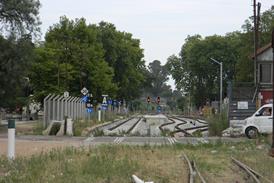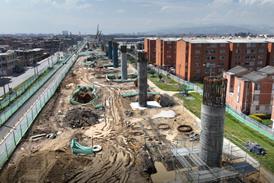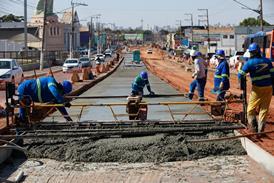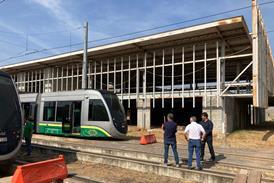MAARTEN VAN EEGHEN, Director General in the Dutch Ministry of Transport, Public Works & Water Management, warned senior executives attending the EuroRail conference at the end of January in Amsterdam to keep politics - and politicians - out of the business.
In a forthright keynote presentation describing recent events and current rail strategy in the Netherlands, van Eeghen admitted that railway policy ’went a little far’ in terms of market forces and competition. Introducing on-rail competition was ’the fastest way to lose control’ because every operator would want to run at the same time, and only the government can allocate the paths, he suggested. A ’free-for-all’ would not work, he said, and for this reason the Dutch government had concluded that ’the main railway network is indivisible’. Netherlands Railways had therefore been granted ’an exclusive concession until 2015’.
The government now saw the main task for NS as ’providing reliable mass transport between the urban areas’, and this was ’the only reason why we are putting money into the railway’, affirmed van Eeghen. Warming to this theme, he said that ’you must give NS a chance’. If politicians wanted operators to pay higher access fees and they were unable or unwilling to do so, ’politicians would get involved again’.
Setting out policy changes for running rail services in the Netherlands, van Eeghen emphasised the importance of making better use of the existing network. ’The present way of running the railway is far too complex. We were progressing in the wrong way, and expansion of the rail network is not a realistic alternative. Politicians love to have new pet projects. The key to better utilisation is restoring reliability’, he asserted, citing the performance of JR East as a model to emulate.
The policy now was ’B&B’, which stood for Benutten & Bowen (use and build). The conclusion from the government’s recent studies was that ’we needed a less dependent network’. At the moment, van Eeghen said, ’we have a complicated timetable with oil slick effects from disruption - it is complex and vulnerable’. From 2007, therefore, NS would move to ’independent corridors’ with dedicated rolling stock and ’a resilient timetable’ that was simple and robust. Average travel time for 80% of passengers would be shorter, but van Eeghen conceded that some people would have to change more.
Japan was the benchmark country, van Eeghen said, where a four-level service was operated on two tracks between Osaka and Kyoto with 18 trains an hour each way. With the future NS service up and running, the Netherlands would be ’a good benchmark for the rest of Europe’. Meanwhile, the government was allocating €853m to prevent further deterioration of the network, with another €1075m to restore reliability by 2012. n




















